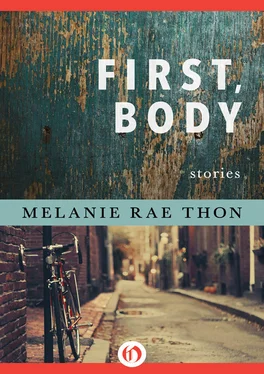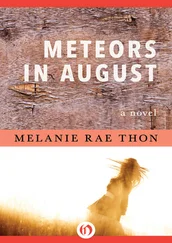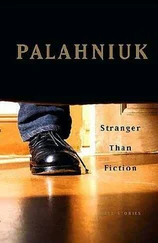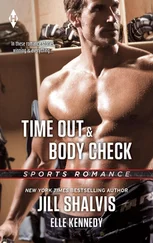She’s seven, she’s twelve, she’s fourteen, she’s gone.
I see a dark-skinned boy on a bike riding toward the refrigerator in the field. He doesn’t know what’s in it, but he spots the silver bicycle sparkling in the grass. He can’t believe what he finds. He’s only a child, but he knows she’s dangerous to him. He doesn’t check for breath or pulse, doesn’t lean close to see she’s just a girl. He’s smart enough not to touch. He flies across the field, pumping harder than he thought he could while the sun blazes and spits in the bleached white sky.
I’m Dora. I’m the girl in the refrigerator. I’m the girl in the closet. I’m the girl who’s left her bike in the reeds by the canal. I can’t be found.
I know you’re afraid of where I’m going when I tell you this. I’m afraid. But I can’t stop. Forgetting is the first lie, a little death. I won’t abandon myself piece by piece. I know what happens to wicked runaway girls. You find us in rivers of grass, or floating in ponds. You find us under our own beds or stuffed in the hedges of our own yards. You find our shoes in trash heaps. When we surface at last, you give numbers to our bones. But this isn’t one of those stories. See, these are my hands. This is my voice talking. As long as you hear me, I’m alive.
One night my father forgot to come home. Max forgot the boy with the bullet in his palm, forgot a woman pushed from her truck to the road. Max says, I never did nothin’ wrong . My grandfather sits in the wheelchair upstairs, touching his right hand with his left, trying to remember when his body had two sides and the words that might explain. Mother says, Just a bad dream, baby .
They leave me to remember it all.
These are the rules:
Don’t sit in the sun.
Don’t ride your bike on the road.
Don’t walk by the canal.
Everything here is dangerous: heat, wind, days of rain — this water wants to rise, wants to take back this ground; waves want to splinter boats and wash dark bodies to the shore. Grass cuts your hand if you grab it; leaves tipped with poison pierce your clothes. The alligator in the sun looks harmless as rubber, a truck’s blown tire, only the eyes moving, but one flick of the tail and you’ll be in the water, your legs broken, your back numb.
But Dora always disobeyed; Dora always walked home along the canal. Even the ducks were fierce. She swatted at them with a stick. One bit her cheek — see, beneath the eye, this white scar.
Grandpa said, Go get my gun . He hated the ducks. Their noise. Their shit on his lawn. Dora promised to stay on the road, but he said, Actions have consequences . She knows she is the consequence of certain actions for which her mother is to blame. She knows she can’t stop him now. This has nothing to do with her, the wound on the cheek, the eye that could have been lost. This is the voice of the gun, the stutter in the brain, the trembling hand, a hurt so old it’s hard and small as the bullet in the heart of the gun.
She knows where it is, exactly, where it stands in the closet, propped against the wall — the clean, oiled, loaded rifle. She knows already how it feels in her small hands — exactly how long, how smooth. She knows its surprising weight.
Her grandfather once dreamed cities into being — the straight grids of streets, the safe repetition of houses — raised them out of wet ground. Now he speaks with a stutter; his walk is a stutter too. He’s had one stroke already, will have six more before he dies, so Dora’s mother says, He couldn’t have killed the ducks , but Dora remembers the heavy bodies of birds falling from the sky.
And she remembers the girl. The moon was new, a carved blade slung low at twilight, reflected in water. She wanted to dive through it, into the rippling shadows of palms, wanted to swim away from her grandfather, whose hand was hot, whose whole body smelled of the swamp. But she was more afraid of the canal: reeds to wrap ankle and wrist, mud to suck you down.
This is why her grandfather dragged her here. This is what she saw. A pale girl in dark water. Floating. Face down.
Her grandfather squeezes her hand so tight her face goes numb.
This is her proof: her own feet cut by the shells embedded in the road. Fine scars now.
A dream , Mother says. Yes, a girl did drown, but your grandfather was in a wheelchair by then, so how could he take you to the canal ?
Dora can’t ask him. He doesn’t know.
She’s the only one who remembers how the water looked that night, smooth and slow, its surface tight as skin and just as fragile. How the girl’s body seemed not to have fallen. She rose. She broke the skin. She was the white scar on the black surface of memory. Whether she existed or not, she was the place you entered if you wanted to remember it all.
This part Dora doesn’t remember — she can’t, she wasn’t there. So she doesn’t know how the boy who found her in the refrigerator told nobody all day, how he hid instead under his own porch, hoping that what he’d seen wasn’t real, that he’d wake and forget. His mother stood at the door calling his name. The earth was dark, the sky still blue. The third time, her voice broke him, and the child crawled out.
He talks his way backward till he sees more at dusk than he saw in the scorched field. He knows now she’s only a girl, very white but burned red, almost blistering, her eyelids — Did he come that close? Yes, now he remembers — and her thighs streaked with dirt — no, not dirt, something dry, rust-colored, flaking off her skin.
His mother is afraid for him in a new way, not afraid as she was when she stood alone and her son was only her voice, an image in her mind, the shape of her lips in the dark — now he’s here, with her, in her arms, dirty, whole, but she’s afraid because she wonders what they’ll think when he tells them, It’s been hours . She hears herself pleading, He’s only eight years old . She wants to hide under the porch with him and wait till dawn — she’s a mother, after all — but she sees the girl, those sore eyes. She believes in grace and knows this child, like hers, might be alive.
Dora doesn’t remember how the boy led dogs and men back to the field in the now complete dark, doesn’t remember how they questioned him, how they tried to make him conjure somebody else in that field, tried to make him believe that man’s face was dark and familiar and this was the reason for his silence.
And she doesn’t remember the hands under her, the hands on her chest pumping, the mouth on her mouth breathing, doesn’t remember her body lifted to the stretcher, the white ambulance, the mask over nose and mouth, the needle jabbed in the vein and taped to the hand, doesn’t remember the long white hall or the cool metal of the scissors cutting her out of her clothes, doesn’t remember all the hands on her, where they touched and how.
Remembers only this: waking in the white room and her mother there asleep in the chair beside her, her mother opening her eyes at the same moment Dora opened hers, and in this way she thought her mother must know what had happened but won’t say now or ever what it was, will only refer to it in the future as the time Dora rode her bike too long in the sun, the time Dora passed out and nearly died in the heat — and hadn’t she been warned?
She doesn’t feel anything inside. Feels only her burned skin. She would tell her mother something if she knew where to start.
Imagine this: another boy, not the one who will find her. None of that has happened yet. This one’s no boy really and no stranger. Lewis Freyer . Like prayer , Dora thinks — when she remembers her hands on him it’s that quiet.
Читать дальше











